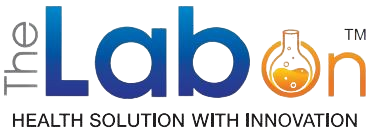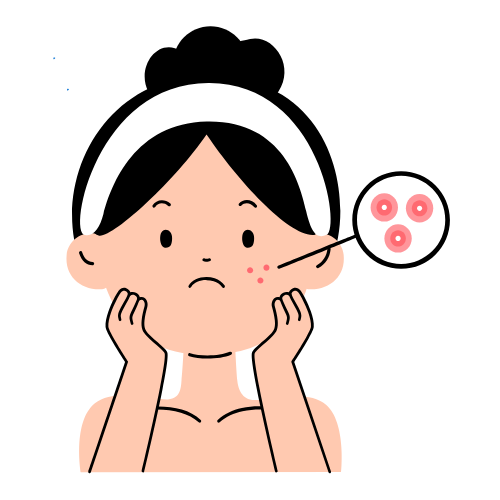The Ultimate Guide to Acne: Causes, Types, Treatment & Prevention
Acne is one of the most common skin conditions globally, affecting millions of teenagers and adults alike. Every where someone is searching for acne causes and treatment options available out there. Despite being a prevalent issue, acne can significantly impact one’s confidence and overall well-being. This comprehensive guide explores everything about acne—from its causes and types to diagnosis, treatment, prevention, and more.
Overview: Understanding Acne
What is Acne?
Acne is a chronic skin condition that occurs when hair follicles become clogged with oil (sebum), dead skin cells, and bacteria. This clogging leads to inflammation, pimples, blackheads, whiteheads, and sometimes deeper cysts or nodules.
What are the Types of Acne?
- Comedonal Acne: Non-inflammatory, marked by blackheads and whiteheads.
- Inflammatory Acne: Papules and pustules caused by infection and inflammation.
- Cystic Acne: Deep, painful cysts under the skin, often leading to scars.
- Nodular Acne: Large, solid painful lumps under the skin surface.
- Acne Mechanica: Caused by friction, heat, or pressure on the skin (common in athletes).
- Acne Conglobata: A severe form characterized by interconnected nodules and abscesses.
Clinical Features of Acne Vulgaris
Superficial Lesions
- Blackheads, whiteheads, papules, pustules.
Deeper Lesions
- Nodules, cysts, leading to more severe presentations.
Secondary Lesions
- Scarring.
- Post-inflammatory hyperpigmentation.
Variation by Skin Type
- Darker skin: prone to hyperpigmentation.
- Fairer skin: more prone to redness and visible scarring.
Who Does Acne Affect?
Acne can affect:
- Teenagers: Most commonly due to hormonal changes.
- Adults: Hormonal fluctuations, stress, and diet can trigger adult acne.
- Pregnant Women: Due to hormonal shifts.
- People with a Family History: Genetics play a significant role.
Complications of Acne Vulgaris
- Scarring: Atrophic (depressed) or hypertrophic (raised).
- Hyperpigmentation: Dark spots after healing.
- Psychological Impact: Low self-esteem, anxiety, depression.
- Skin Infections: From picking or improper treatment.
How Common is Acne?
Acne is extremely common, affecting approximately 85% of people between 12 and 24 years of age. However, adult acne is also prevalent, particularly in women.
Where on My Body Will I Have Acne?
Acne typically appears on:
- Face: Most common
- Back: Known as ‘bacne’
- Chest
- Shoulders
- Neck
Symptoms and Causes of Acne
What are the Symptoms of Acne?
- Blackheads: Open pores clogged with oil and dead skin.
- Whiteheads: Closed clogged pores.
- Papules: Small red, tender bumps.
- Pustules: Pimples with pus at their tips.
- Nodules: Large, painful lumps beneath the skin.
- Cysts: Deep, pus-filled lumps that may cause scars.
What Causes Acne?
- Excess Oil Production: Overactive sebaceous glands.
- Clogged Hair Follicles: Dead skin cells not shedding properly.
- Bacteria: Especially Cutibacterium acnes, triggering inflammation.
- Hormonal Changes: Increased androgens during puberty, menstruation, or pregnancy.
- Diet: High sugar and dairy consumption may contribute.
- Stress: Increases hormone levels that may worsen acne.
Triggers of Acne
- Cosmetics: Pore-clogging (comedogenic) products.
- Medications: Such as steroids and lithium.
- Friction or Pressure: From helmets, backpacks, tight collars.
Foods That May Cause Acne
- High Glycemic Foods: White bread, sugary snacks.
- Dairy Products: Milk, cheese may exacerbate acne in some individuals.
- Fast Food: High-fat, processed foods may influence breakouts.
Hormones and Acne
Hormonal changes increase oil production, contributing to clogged pores. This is why teenagers, pregnant women, and those with hormonal imbalances often experience acne flare-ups.
Diagnosis and Tests
How is Acne Diagnosed?
A dermatologist can usually diagnose acne by examining your skin. The assessment includes identifying the type and severity, which informs the treatment approach.
Who Treats Acne?
- Primary Care Providers: Manage mild to moderate cases.
- Dermatologists: Specialize in treating severe or persistent acne.
- Endocrinologists: In cases where hormonal imbalance is suspected.
How Severe Can Acne Get?
- Mild Acne: Mostly blackheads and whiteheads.
- Moderate Acne: More papules and pustules.
- Severe Acne: Nodules, cysts, and widespread breakouts, often with scarring.
Management and Treatment
How is Acne Treated?
Treatment depends on the type and severity of acne:
Topical Acne Medications
- Benzoyl Peroxide: Kills bacteria and helps prevent clogged pores.
- Salicylic Acid: Exfoliates the skin to keep pores clear.
- Retinoids: Promote cell turnover (e.g., tretinoin, adapalene).
- Topical Antibiotics: Clindamycin, erythromycin reduce bacterial growth.
Oral Acne Medications
- Antibiotics: Doxycycline, minocycline help reduce bacteria and inflammation.
- Hormonal Treatments: Birth control pills or spironolactone for women with hormonal acne.
- Isotretinoin (Accutane): For severe cystic acne; highly effective but with potential side effects.
Additional Acne Therapies
- Chemical Peels: Use of acids to remove top layers of skin and unclog pores.
- Laser and Light Therapy: Targets bacteria and reduces inflammation.
- Extraction Procedures: For persistent blackheads and whiteheads.
How Do Antibiotics Treat Acne?
They reduce bacteria (C. acnes) on the skin and lessen inflammation but should be combined with topical treatments to prevent resistance.
How Can I Make My Acne Go Away at Home?
- Gentle Cleansing: Wash your face twice daily with a mild, non-abrasive cleanser.
- Avoid Scrubbing and Harsh Exfoliants: These can irritate the skin and worsen acne.
- Non-Comedogenic Products: Use makeup and skincare that won’t clog pores.
- Avoid Popping Pimples: Prevents scarring, infection, and further inflammation.
- Over-the-Counter Treatments: Apply products containing benzoyl peroxide or salicylic acid.
- Hydration: Drink enough water and use a gentle moisturizer to maintain skin balance.
- Balanced Diet: Reduce sugar and dairy intake to help manage breakouts.
When to Seek Medical Advice
- Acne is painful, cystic, or scarring.
- If over-the-counter treatments haven’t worked after 8 weeks.
- If acne affects self-esteem or mental health.
- Signs of infection (pain, swelling, redness).
Is Acne Treatment Safe When You’re Pregnant?
Some treatments like retinoids and certain antibiotics are unsafe during pregnancy. Safe options include:
- Azelaic Acid
- Clindamycin (topical)
- Glycolic Acid (mild concentrations)
How Long Does It Take for Acne to Go Away?
Most treatments take 6 to 12 weeks to show noticeable improvements. Persistence and consistency are key.
Acne Grading: Assessing Severity
Dermatologists classify acne into grades based on severity:
- Mild Acne:
Primarily consists of blackheads and whiteheads with occasional small pimples. Minimal inflammation. - Moderate Acne:
Characterized by frequent papules and pustules. Inflammation is more apparent and lesions may spread to the chest and back. - Severe Acne:
Features nodules, cysts, and widespread inflamed lesions. This grade is more likely to cause permanent scarring and emotional distress.
Why Acne Grading Matters:
Grading helps in deciding the appropriate treatment plan, ranging from topical solutions for mild cases to systemic therapy for severe forms.
Acne Home Remedies
While clinical treatments are often most effective, some home remedies can support skin health:
- Aloe Vera:
Known for its soothing and anti-inflammatory properties. - Tea Tree Oil:
Has antibacterial effects but should be used diluted to prevent skin irritation. - Green Tea Extract:
Topical application may help reduce inflammation and sebum production. - Apple Cider Vinegar:
Has antimicrobial properties but must be diluted to avoid burns or irritation.
⚠️ Always patch-test natural remedies to avoid adverse reactions.
Is Acne Treatment Safe During Pregnancy?
Treating acne during pregnancy requires caution:
Safe Options:
- Azelaic Acid: Effective for reducing bacteria and inflammation.
- Clindamycin (Topical): A commonly prescribed topical antibiotic considered safe.
- Glycolic Acid: Helps with exfoliation without significant systemic absorption.
Acne Treatment by Severity
Mild Acne
- Topical retinoids, salicylic acid, benzoyl peroxide.
Moderate Acne
- Topical treatments + oral antibiotics (doxycycline, minocycline).
Severe Acne
- Oral isotretinoin (Accutane).
- Hormonal therapies for females (birth control, spironolactone).
- Physical procedures (chemical peels, light therapy).
Unsafe Treatments:
- Oral Retinoids (e.g., Isotretinoin): Strictly contraindicated due to severe birth defect risks.
- Topical Retinoids: Generally avoided.
- Oral Tetracyclines: Harmful to fetal bone and teeth development.
Always consult a healthcare provider before starting any acne treatment during pregnancy.
Acne Risk Factors
Certain factors increase the likelihood of developing acne:
- Genetics: Family history of acne.
- Hormonal Imbalances: Such as during puberty, menstruation, or conditions like PCOS.
- Diet: High intake of dairy and high-glycemic foods.
- Stress: Elevates cortisol levels, which can trigger breakouts.
- Medication Use: Steroids, lithium, and some anticonvulsants.
Prevention Tips
- Maintain Clean Skin: Gentle cleansing twice daily with a mild cleanser.
- Use Non-Comedogenic Products: Choose skincare and makeup that won’t clog pores.
- Shower After Sweating: Removes sweat and bacteria.
- Avoid Touching Your Face: Minimizes the transfer of oils and dirt.
- Manage Stress: Through relaxation techniques such as yoga and meditation.
Final Thoughts
Acne is a common yet complex skin condition that can impact both appearance and mental well-being. With the right knowledge, consistent skincare habits, and professional guidance, most cases of acne can be effectively managed or even prevented. Early intervention is key to avoiding complications like scarring or pigmentation. Remember, everyone’s skin is unique—what works for one person may differ for another, so a personalized approach is often best. For persistent or severe acne, consulting a dermatologist is the smartest step toward clearer, healthier skin.
Frequently Asked Questions (FAQs)
1. What is the main cause of acne?
Acne is primarily caused by excess oil production, clogged pores, bacteria, and inflammation, often triggered by hormonal changes.
2. Does diet affect acne?
Yes, diets high in sugar, dairy, and processed foods may worsen acne in some people, though it varies by individual.
3. How long does it take for acne to clear up?
With proper treatment, noticeable improvement can take 6 to 12 weeks, but severe cases may need longer.
4. Can stress cause acne?
Yes, stress increases hormone levels like cortisol, which can trigger or worsen breakouts.
5. Is it okay to pop pimples?
No, popping pimples can lead to scarring, infection, and further inflammation.
6. Which treatment is best for hormonal acne?
Hormonal acne often responds well to oral contraceptives, spironolactone, or topical retinoids, under a dermatologist’s guidance.
If you have other skin concerns click here for more information and treatment options.

